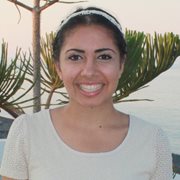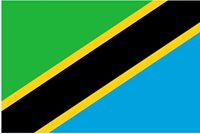Gurmeet Kaur Sohi
 Gurmeet is a medical student at the University of Manitoba’s Max Rady College of Medicine who will start her third year in fall 2016. She graduated in 2012 from the University of British Columbia with an MSc in Pathology and Laboratory Medicine and in 2010 from Simon Fraser University with a BSc in Biomedical Physiology and Kinesiology. During her Masters’ research, while investigating the effects of HIV medication, she was introduced to the public health issues around the HIV epidemic. That sparked her interest in global health. She was also a part of the Canadian Forces Health Services Reserve as a Medical Assistant, where her passion to be involved in healthcare around the world grew.
Gurmeet is a medical student at the University of Manitoba’s Max Rady College of Medicine who will start her third year in fall 2016. She graduated in 2012 from the University of British Columbia with an MSc in Pathology and Laboratory Medicine and in 2010 from Simon Fraser University with a BSc in Biomedical Physiology and Kinesiology. During her Masters’ research, while investigating the effects of HIV medication, she was introduced to the public health issues around the HIV epidemic. That sparked her interest in global health. She was also a part of the Canadian Forces Health Services Reserve as a Medical Assistant, where her passion to be involved in healthcare around the world grew.
Currently, Gurmeet is part of a national group of students working to promote Choosing Wisely Canada and resource stewardship with the aim of incorporating teaching around decreasing unnecessary tests and treatments into undergraduate medical education. She is also a member of the Global Health Concentration Program at her medical school, which has provided additional learning opportunities around social determinants of health, health inequities and other global health issues.
In the future, she plans on having a career that involves working with a geriatric population, being involved with global health, and advocacy, outreach and prevention. Growing up on the west coast in British Columbia, Canada, Gurmeet’s interests in her free time include hiking and exploring the great outdoors as well as reading, gardening and traveling.
 Project: "Global Health Concentration Program - Clinical Exposure in Rural Tanzania"
Project: "Global Health Concentration Program - Clinical Exposure in Rural Tanzania"
June 27, 2016 - July 22, 2016
Tanzania
What does the Kean Fellowship mean to you?
I am so very honored to have been selected for the Kean Fellowship as it has helped in providing me with the opportunity to experience healthcare delivery in Tanzania. The support provided by the American Society of Tropical Medicine and Hygiene through this Fellowship is invaluable in not only my educational experience in Tanzania, but in providing the support in fostering my personal interest in global and rural medicine. The Kean Fellowship has provided me with the opportunity to learn by experience and explore further the realities of tropical medicine and global health. I am very excited to be part of the community of Kean Fellows – past, present, and future – who have pursued the challenge of exploring a side of medicine we don’t often get to experience in North America.
What do you anticipate learning?
Last summer, I participated in an exchange in Larissa, Greece during the country’s financial crisis, which was a unique experience. As Larissa was an urban center, I look forward to the contrast in the clinical exposure as I will be working in a rural community in Tanzania. I am looking forward to not only developing my clinical skills further but refining my communication skills and educating myself around Tanzanian culture and their health systems. As I will be also working with the Canadian Physicians for Aid and Relief, I am looking forward to participating in the community health initiatives taken on by the group, including increasing education around malaria prevention, maternal health and clean water. Spending a month in a clinical environment in a malaria-endemic area, I expect to learn a lot about how the health systems have been developed and work in dealing with infectious diseases.
What interests you about tropical medicine and what problems are you interested in solving?
Tropical medicine is interesting because there is so much diversity, not only in the populations affected but also the type of conditions seen. Although I was born and raised in Canada with minimal exposure to infectious diseases, my parents grew up in Punjab, India. Hearing their experiences about healthcare in India was fascinating because there was such a stark contrast in the types of conditions that affect the populations and in the healthcare responses. These differences and the determinants that factor into these differences are what drive my interest in tropical medicine. Bill Gates recently stated that he believes malaria can be eradicated within a generation with a plan of how this could be done. The problems that I’d like to solve would ideally be of that scale, but I can recognize that a month in a community will benefit my learning experience more than anything. My hope is that the footprint of my medical ‘voluntourism’ can be limited, and that I can share my experiences and increase awareness so that we can work collaboratively and advocate as members of the medical profession to realize future successes in the reduction or eradication of infectious diseases.